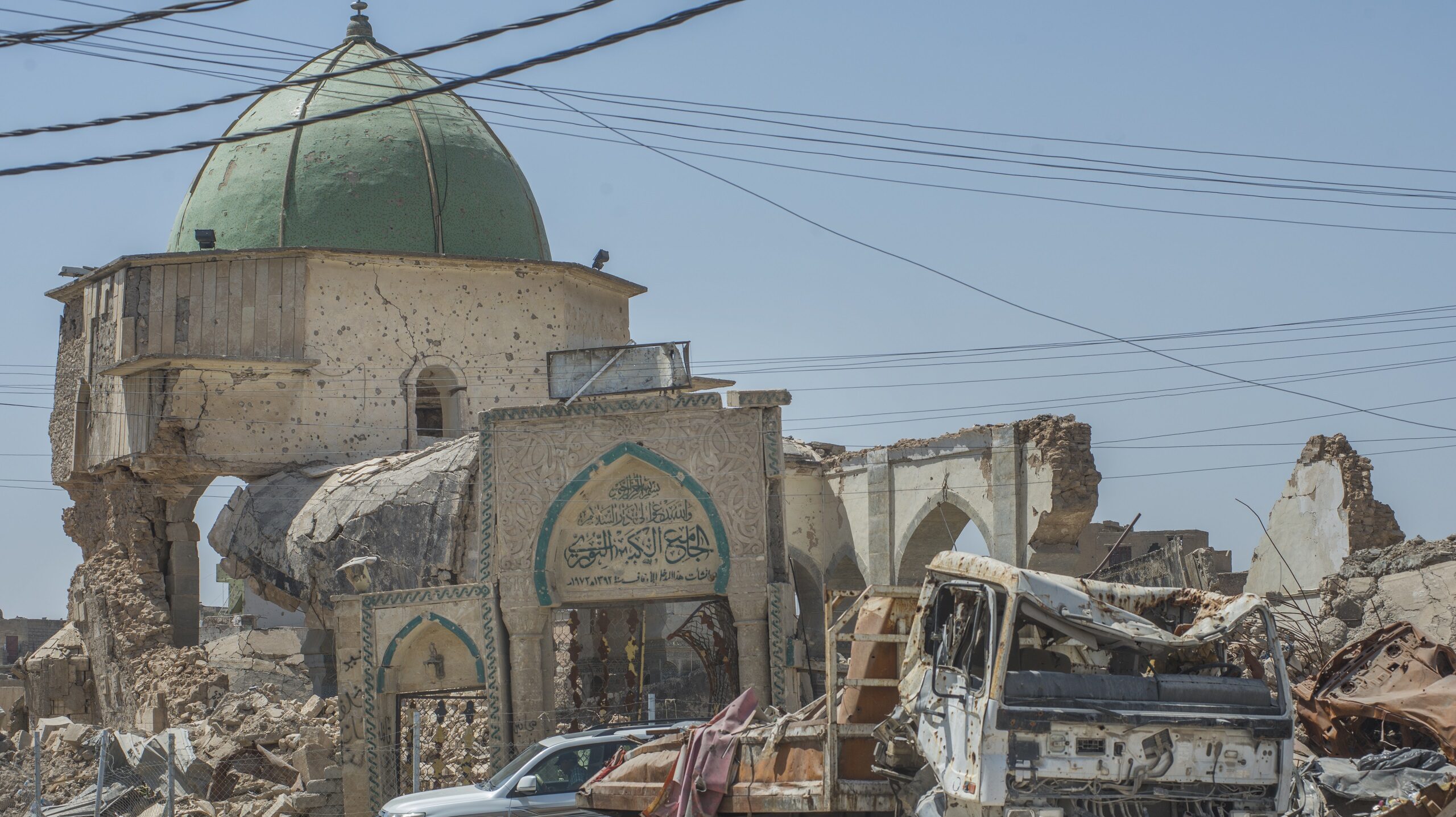Iraq Reopens Mosul’s Iconic al-Nuri Mosque After Years of Reconstruction
Iraqi Prime Minister Mohammed Shia’ al-Sudani on Monday officially reopened the historic al-Nuri Mosque and its al-Hadba minaret in Mosul, marking the completion of a yearslong reconstruction effort. The restoration follows the destruction of the centuries-old landmark by the Islamic State in 2017, when the group detonated explosives inside the mosque during battles for the city.
Al-Sudani described the demolition as an attack designed to kill the spirit of Mosul and sever its connection to its glorious history. He emphasized that the rebuilding of the mosque represents the resilience of Iraqis and their ability to reclaim their cultural heritage.
This holiday season, give to:
Truth and understanding
The Media Line's intrepid correspondents are in Israel, Gaza, Lebanon, Syria and Pakistan providing first-person reporting.
They all said they cover it.
We see it.
We report with just one agenda: the truth.


The al-Nuri Mosque, built in the 12th century, had been a defining feature of Mosul’s skyline for nearly 850 years. Its leaning minaret was one of the city’s most recognizable symbols before its destruction.
The UN Educational, Scientific and Cultural Organization (UNESCO) and the United Arab Emirates (UAE) played key roles in the project. UNESCO, the UAE, and Iraq signed an agreement in 2018 to allocate $50.4 million from the UAE for the mosque’s reconstruction as part of the “Revive the Spirit of Mosul” initiative.
Dr. Mohamed Al Hassan, the UN secretary-general’s special representative for Iraq, praised the collaboration that led to the reopening. “This achievement would not have been possible without the genuine determination of the people and government of Iraq, the generous support of the United Arab Emirates, and the tireless efforts of UNESCO,” he said. He added that through the reopening, Mosul is “declaring to the world the triumph of the will to live over the culture of death, and the victory of hope over despair.”

